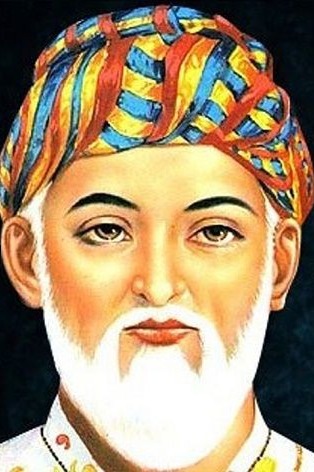
Personal info
Known for
Ultimate Talent
Gender
Male
Birthday
17 December
Location
Delhi, India
Edit pageAbdul Rahim Khan-i-Khanan
Biography
Abdul Rahim Khan-i-Khanan (1556–1627) was a prominent poet, scholar, and nobleman during the reign of Mughal Emperor Akbar. He is renowned for his Hindi dohas (couplets), which blend moral wisdom, devotion, and practical life lessons, and for his distinguished service as a courtier and military commander.
🌿 Early Life and Background
Abdul Rahim was born in Delhi in 1556, the son of Bairam Khan, the regent and mentor of Akbar. Trained in both Persian and Hindustani languages, he grew up in a courtly and scholarly environment that nurtured his poetic and administrative talents.
He earned the title Khan-i-Khanan, meaning “Commander of Commanders,” reflecting his high status in the Mughal court and his important role in military and administrative affairs.
✍️ Literary Career
Rahim was a prolific poet, writing primarily in Hindi using the Devanagari script, though he was also fluent in Persian. His works are admired for their moral instruction, simplicity, and lyrical quality.
Major Works and Contributions:
Doha Poetry: His couplets (dohas) remain widely quoted, offering reflections on life, morality, humility, and devotion.
Books and Translations: He also wrote Persian works and translated texts, contributing to the cultural synthesis of the Mughal period.
His poetry often emphasizes practical wisdom, ethical living, and devotion to God, blending Hindu and Islamic philosophical thought.
🌺 Themes and Style
Abdul Rahim’s poetry is characterized by:
Moral and ethical guidance — dohas often reflect universal truths and life lessons
Devotion and spirituality — blending Bhakti ideals with Islamic influences
Simplicity and clarity — his verses are easily understandable and memorable
Humanism and compassion — encouraging kindness, humility, and virtue
Examples of his famous couplets include reflections on patience, humility, and the impermanence of life.
🕊️ Legacy
Rahim’s contribution to Hindi literature, particularly doha poetry, has made him a timeless figure in Indian literary and cultural history. His verses are still recited, memorized, and taught across India, admired for their moral depth and literary elegance.
Beyond poetry, he is remembered as a distinguished Mughal noble, a scholar, translator, and patron of the arts, whose life exemplified the cultural synthesis of the Mughal era.